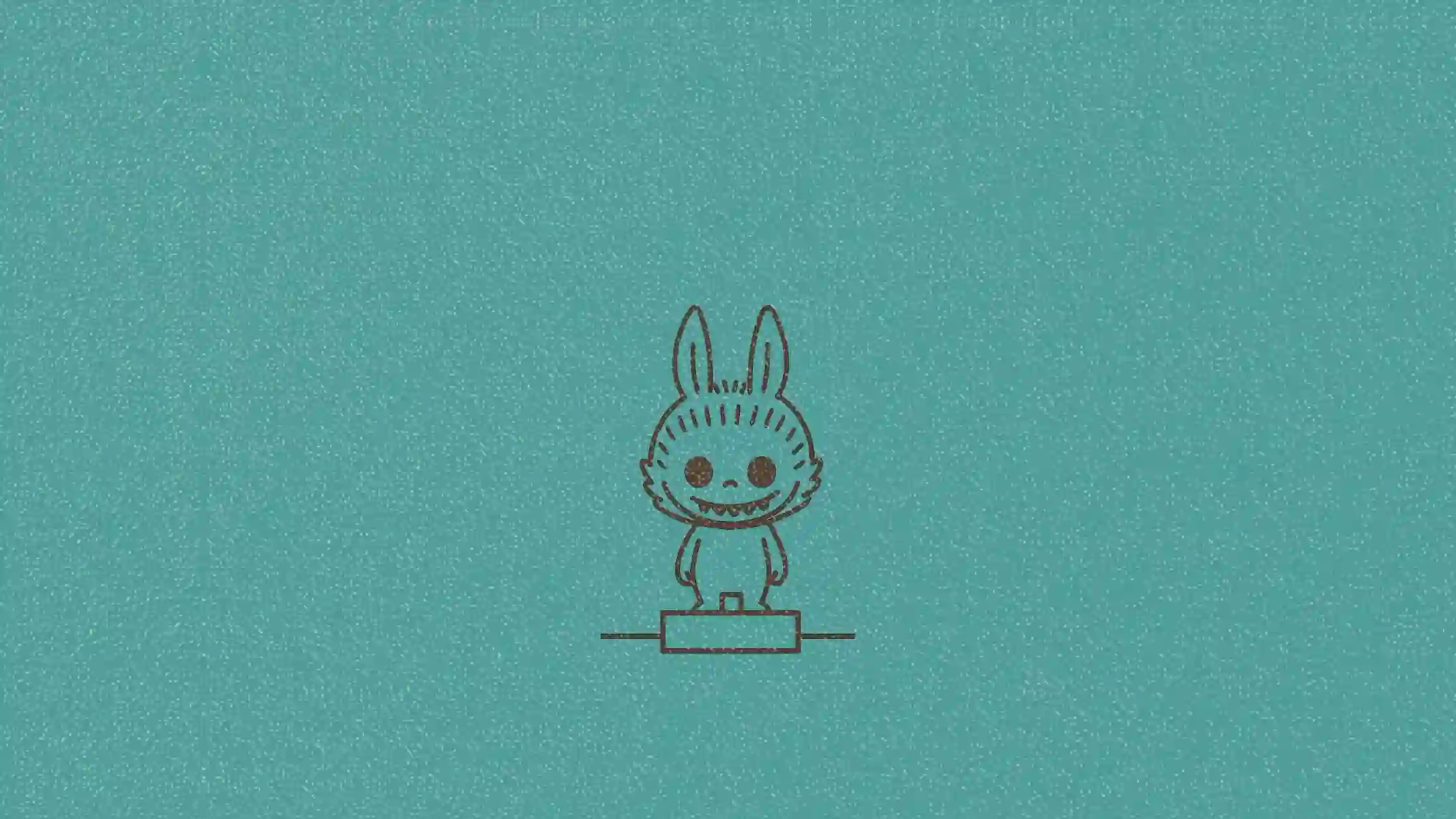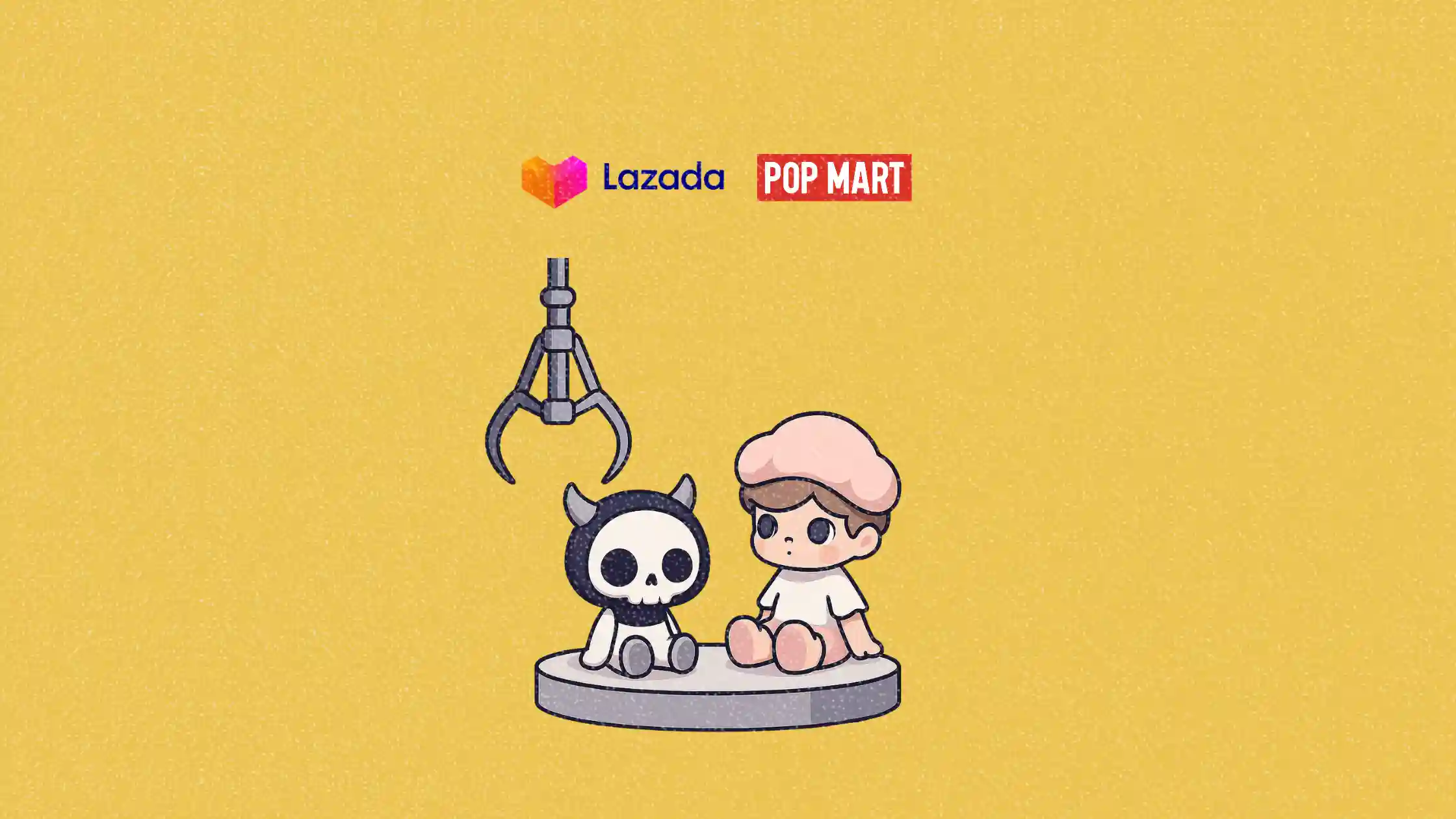Pop Mart bets big on mini Labubu
Pop Mart is getting smaller to scale smarter. Marketers, take notes

Pop Mart is betting that smaller toys could drive bigger returns.
At its 2025 half-year performance briefing, founder Wang Ning teased the launch of a mini version of its best-selling character, Labubu. The downsized blind box collectible is expected to drop within the same week, with use cases expanding from bag charms to mobile phone accessories.
This article explores Pop Mart’s shift in retail strategy, the global potential of Labubu, and what brand strategists and IP marketers can learn from its next move.
Short on time?
Here’s a table of contents for quick access:
- What’s Pop Mart launching and why now?
- Why mini Labubu matters for IP marketing
- What marketers should know

What's Pop Mart launching and why now?
Pop Mart is rolling out a mini version of Labubu, its most recognizable IP. Wang Ning, speaking on August 19, hinted that the new figure is not just a smaller collectible but a more versatile product designed to suit evolving consumer habits. “Previously, people might have hung it on their bags, but starting next week, they may even be able to hang it on their mobile phones,” he noted.
The launch comes amid broader shifts in the company’s growth strategy. Despite aiming for HK$22 billion in revenue by 2025, Wang revealed that surpassing RMB$30 billion (HK$36 billion) this year is “quite easy,” signaling confidence in Labubu’s commercial power.
However, instead of riding that wave with aggressive physical expansion, Pop Mart is opting for restraint. The company plans to open no more than 10 new stores in mainland China this year, choosing instead to optimize performance in existing locations.

Why mini Labubu matters for IP marketing
Labubu isn’t just a toy. It’s an evolving intellectual property that Pop Mart is cautiously scaling. While some brands rush to milk their IP with endless variants and spin-offs, Wang Ning emphasized that Labubu’s value “has only just begun,” suggesting a long game focused on sustained IP health rather than immediate profits.
That restraint is also evident in Pop Mart’s international plans. Rather than overextend domestically, the brand is turning its sights to global markets. Sales from North America and Asia Pacific are expected to match China’s 2024 revenue this year, with 10 new US stores planned by year-end.
There’s also content IP in play. In June, the company quietly launched a film studio and has since registered the script for Season 1 of an animated series titled Labubu與朋友們. That move indicates a cross-platform strategy not unlike what LEGO or Sanrio have used to great effect.

What marketers should know
Pop Mart’s latest moves offer several key takeaways for marketers working with lifestyle products, collectibles, or IP-centric brands:
1. IP longevity beats overexposure
Instead of cashing in with aggressive merchandise drops or franchising deals, Pop Mart is pacing itself. For marketers, it’s a reminder to think beyond the initial launch and map out long-term IP arcs that evolve without fatigue.
2. Think platform-agnostic experiences
Mini Labubu isn’t just smaller. It’s more adaptable. Pop Mart is expanding its character’s utility across use cases, from physical bags to mobile devices. Marketers can learn from this by designing products and campaigns that natively adapt to different lifestyle scenarios.
3. Global expansion doesn’t have to mean local saturation
Pop Mart’s shift from store count to store performance reflects a smarter approach to scaling. Instead of opening everywhere, the company is investing in what already works and using content to drive brand affinity. Marketers expanding in global markets should consider performance-driven metrics over vanity growth indicators.
4. Cross-medium storytelling matters more than ever
The Labubu animated series suggests a commitment to world-building. This strategy is proven to increase consumer emotional investment. If your brand is sitting on untapped narrative potential, now’s the time to explore it through content, community, or experiences.
Pop Mart’s mini Labubu isn’t just a cute collectible. It’s a signal of how smart IP brands grow. Instead of more stores and more SKUs, the company is dialing in on versatility, content, and global relevance. For marketers, it’s a case study in brand restraint, adaptive product design, and thoughtful expansion.
As consumer attention spans tighten and competition rises, the brands that win will be those that resist the urge to overextend and instead double down on resonance and strategy.






